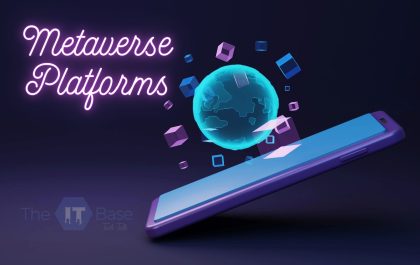Businesses need help with providing efficient and effective customer support. Long wait times, repetitive inquiries, and the need for round-the-clock assistance have put immense pressure on customer service teams. However, with the rapid technological advancements, an innovative solution has emerged: automated customer support through chatbots and AI.
Automation project ideas have become a driving force behind enhancing customer service in a previously unimaginable way. By leveraging the power of artificial intelligence and natural language processing, businesses can now offer seamless support experiences to their customers. This revolutionary approach streamlines processes and opens new possibilities for personalized and efficient customer interactions.
In this blog, we will delve into the world of automated customer support, exploring the role of chatbots and AI technologies in transforming traditional customer service practices. We will discuss their benefits to businesses and customers and the challenges of implementing and optimizing these automated systems.
By the end of this article, you will gain a comprehensive understanding of the impact of automated customer support and discover how it can revolutionize the way businesses interact with their customers. So, let’s embark on this journey to explore the exciting realm of automation project ideas and their potential to enhance customer service.
Table of Contents
Understanding Automated Customer Support
To grasp the significance of automated customer support, it’s crucial first to understand what it entails. Automated customer support uses chatbots and AI technologies to handle customer inquiries and support requests without human intervention.
Chatbots are computer programs designed to simulate human conversations, enabling them to interact with customers conversationally. These chatbots can be integrated into various platforms such as websites, messaging apps, or voice assistants. By leveraging natural language processing (NLP), chatbots can understand and respond to customer queries, providing timely and accurate assistance.
AI technologies play a pivotal role in empowering automated customer support. Machine learning (ML) algorithms enable chatbots “continuously” to learn and improve their performance . Through ML, chatbots can analyze vast amounts of data, recognize patterns, and make data-driven decisions, resulting in more accurate and personalized responses to customer inquiries.
The Role of Chatbots in Customer Service
Chatbots have emerged as game-changers in customer service, revolutionizing how businesses interact with their customers. Their role extends beyond simply automated responses, as they can provide intelligent and context-aware support.
Chatbots handle customer inquiries by engaging in dynamic conversations. They can gather relevant information, ask clarifying questions, and provide tailored solutions to customers’ problems. By automating routine and repetitive tasks, chatbots free up human agents to focus on more complex and high-value customer interactions.
Moreover, chatbots offer several advantages over traditional customer support methods. They provide instant responses, ensuring round-the-clock availability and reducing customer wait times. Chatbots can simultaneously handle multiple inquiries, enabling businesses to scale their support operations without compromising quality. Additionally, chatbots consistently deliver consistent and accurate information, minimizing the risk of human error.
AI Technologies Empowering Automated Customer Support
AI technologies are vital in empowering automated customer support, enhancing its capabilities, and delivering more efficient and personalized experiences. Two prominent AI technologies in this domain are natural language processing (NLP) and machine learning (ML).
Natural Language Processing (NLP) enables chatbots to understand and interpret human language, making them capable of engaging in meaningful conversations with customers. NLP algorithms process and analyze text, enabling chatbots to comprehend the intent, sentiment, and context behind customer queries. This allows chatbots to provide accurate and relevant responses, even when faced with complex or ambiguous inquiries.
Machine Learning (ML) algorithms are the backbone of chatbot intelligence. ML enables chatbots to learn from past interactions, continuously improving their performance . By analyzing patterns and customer feedback, ML algorithms enable chatbots to optimize their responses and adapt to evolving customer needs. This iterative learning process ensures that chatbots become more effective, efficient, and capable of providing personalized solutions.
Another technology worth mentioning is virtual assistants. These advanced chatbots possess a higher level of intelligence and can handle complex tasks by integrating with various systems and databases. Virtual assistants, such as Amazon’s Alexa or Apple’s Siri, use AI technologies to understand user commands, execute actions, and retrieve information, showcasing the potential for automated customer support to extend beyond text-based interactions.
By harnessing the power of NLP, ML, and virtual assistants, businesses can unlock the true potential of automated customer support, providing customers with seamless and intelligent assistance that meets their expectations.
Challenges and Limitations of Automated Customer Support
While automated customer support brings numerous benefits, it is essential to acknowledge and address the challenges and limitations associated with its implementation.
One challenge is the potential limitations of chatbots and AI technologies. Chatbots may need help understanding and accurately responding to complex or ambiguous customer inquiries. The limitations of language processing algorithms can lead to better solutions. Overcoming these challenges requires continuous improvement and fine-tuning chatbot algorithms to ensure better accuracy and comprehension.
Ensuring accuracy is another challenge. Chatbots must provide accurate information and solutions to customers. Inaccurate responses can lead to frustration and dissatisfaction. Businesses need to invest in training chatbots with comprehensive and up-to-date knowledge bases to ensure the accuracy of their responses.
Balancing automation with human intervention is crucial, especially for complex issues requiring human empathy or problem-solving skills. While chatbots excel at handling routine and straightforward inquiries, there are instances where human intervention is necessary. Striking the right balance between automated and human support is essential to provide a seamless and satisfactory customer experience.
To Conclude
Automated customer support through chatbots and AI technologies has transformed the customer service landscape, offering businesses unprecedented opportunities to enhance efficiency and deliver exceptional customer experiences. The benefits of automated customer support, such as improved efficiency, scalability, cost-effectiveness, and personalization, drive its widespread adoption across various industries.
To unlock the potential of automated customer support, businesses can explore toolkits and resources provided by kandi. We offer comprehensive toolkits for different development needs, empowering businesses to effectively build and optimize their automated customer support systems.
Embrace the power of automation project ideas and join the revolution in customer service. Implement automated customer support through chatbots and AI technologies to elevate your customer service experience and stay ahead in the competitive landscape. Visit our website now!
Related posts
Hot Topics
Metaverse Platforms for Virtual Workspaces
Ever felt like your office is stuck in the Stone Age? Tired of endless Zoom calls that feel about as…
IoT Protocols: The Language of Smart Devices
Ever wonder how your smart fridge talks to your phone? Or how does your fitness tracker know to buzz when…



